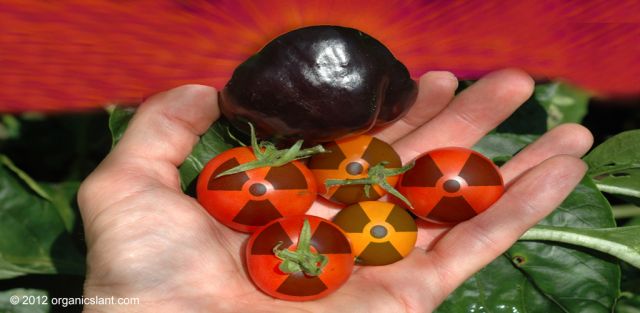Extremely High Levels of Radiation Found in 16,000 Food Imports from Fukushima Prefecture South Korea Shows (Video)
by N.Morgan
.jpg)
Food being grown at the meltdown site of Fukushima is showing dangerously high levels of radiation and has raised concerns among lawmakers. One South Korean lawmaker has called for import restrictions on Japanese processed foods from areas affected by the 2011 Fukushima nuclear disaster.
Citing reports from the food safety ministry earlier today, Kim Kwang-Su said thirty-five cases of high levels of radiation were found in roughly sixteen-thousand imports from regions surrounding the power plant.
Kim said the current ban on imports of all fishery products from eight prefectures around Fukushima, which has been in effect since 2013, is not enough for public safety.
.png)
South Korea should restrict imports of processed foods from Japan’s Fukushima region as radiation has been found in shipments, an opposition lawmaker said Monday.
South Korea banned all seafood imports from eight Japanese prefectures near Fukushima in 2013 on concerns over their radiation levels in the wake of the 2011 Fukushima nuclear power plant meltdown. But no import restrictions have been put on processed foods from the areas.
Citing data from the Ministry of Food and Drug Safety, Rep. Kim Kwang-soo of the minor opposition Party for Democracy and Peace said radiation has been discovered in 16.8 tons of processed foods imported from the eight prefectures, or 35 shipments, over the past five years.
The figures were 10 tons (11 shipments) in 2014, 0.1 ton (six) in 2015, one ton (six) in 2016, 0.3 ton (four) in 2017, 0.4 ton (six) in 2018 and 5 tons (two) for the first half of this year.
South Korea imported 29,985 tons of processed foods from the Japanese prefectures between 2014 and June this year. Imports, which came to 3,803 tons in 2014, increased to 7,259 tons last year. In the January-June period of this year, imports reached 3,338 tons.
“It is urgent for the government to take necessary action against processed foods from the eight Japanese areas since they pose a serious risk to public health,” the lawmaker said.
No import restrictions have been imposed on the processed foods, though a recent ruling by the World Trade Organization (WTO) has allowed Seoul to retain the import ban on 28 kinds of fish caught in the eight prefectures, he said.
In response to a complaint from Tokyo, the WTO ruled in April this year that Seoul’s measures do not amount to unfair trade restrictions or arbitrary discrimination.
Meanwhile, the Ministry of Food and Drug Safety said it sees no problem with imports of processed foods from the eight Japanese prefectures because the Japanese government submits inspection certificates and thorough checks are conducted at local quarantine offices. (Yonhap)
Seniors urged to eat Fukushima rice to help farmers, protect young people
A Tokyo senior is waging an individual effort to get elderly people to eat rice grown in Fukushima Prefecture to help local farmers struggling with rumors that their crops are radioactive and to make sure the grain isn’t consumed by more vulnerable younger generations.
Strong earthquake with a magnitude of 6.2 hits off the coast of Fukushima in Japan
A strong 6.3-magnitude earthquake has struck off the coast of northeastern Japan shaking a wide area including the region of Fukushima.
Nuclear power plants in the area have not suffered damage in the tremor, including the Fukushima Daiichi plant that suffered multiple meltdowns following a quake in 2011, and authorities have said there is no danger of a tsunami.
No immediate casualties have been reported following the sudden jolt at 7.23pm local time, or 10:23 am GMT, that happened east of Namie, in eastern Fukushima.
The Japan Meteorological Agency says Sunday’s quake’s epicenter was about 31 miles beneath the seabed, and that there were no concerns about tsunami damage.
Shaking was felt across Fukushima and the Miyagi regions as well as in central Tokyo.
The weather agency has issued an emergency warning following the tremor as Shinkansen bullet train services were temporarily suspended in the area.
In 2011, Fukushima was hit by a powerful quake, tsunami and several nuclear meltdowns, by orders of magnitude the worst nuclear disaster since Chernobyl.
More than 18,000 were killed after the 9.0-magnitude earthquake triggered a massive tsunami on March 11 which led to a meltdown at the plant.
Japan sits at the junction of four tectonic plates and experiences a number of relatively violent quakes every year.
We have an affiliate program designed for content creators and affiliate marketers, who would like to sell this product, please click here for affiliate program details. Our affiliate program is designed to help you monetize your screen time.

References:
Comments
Post a Comment